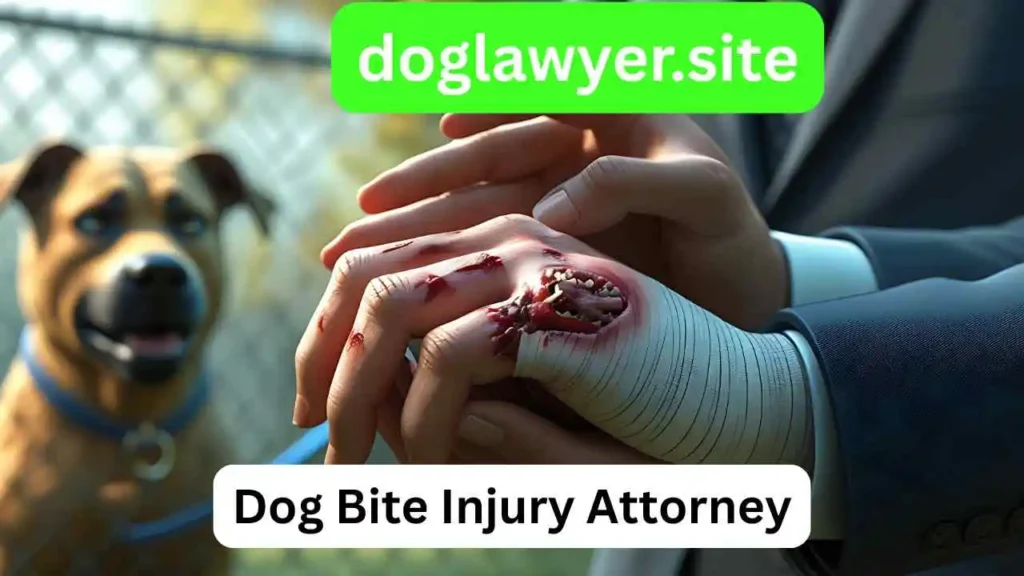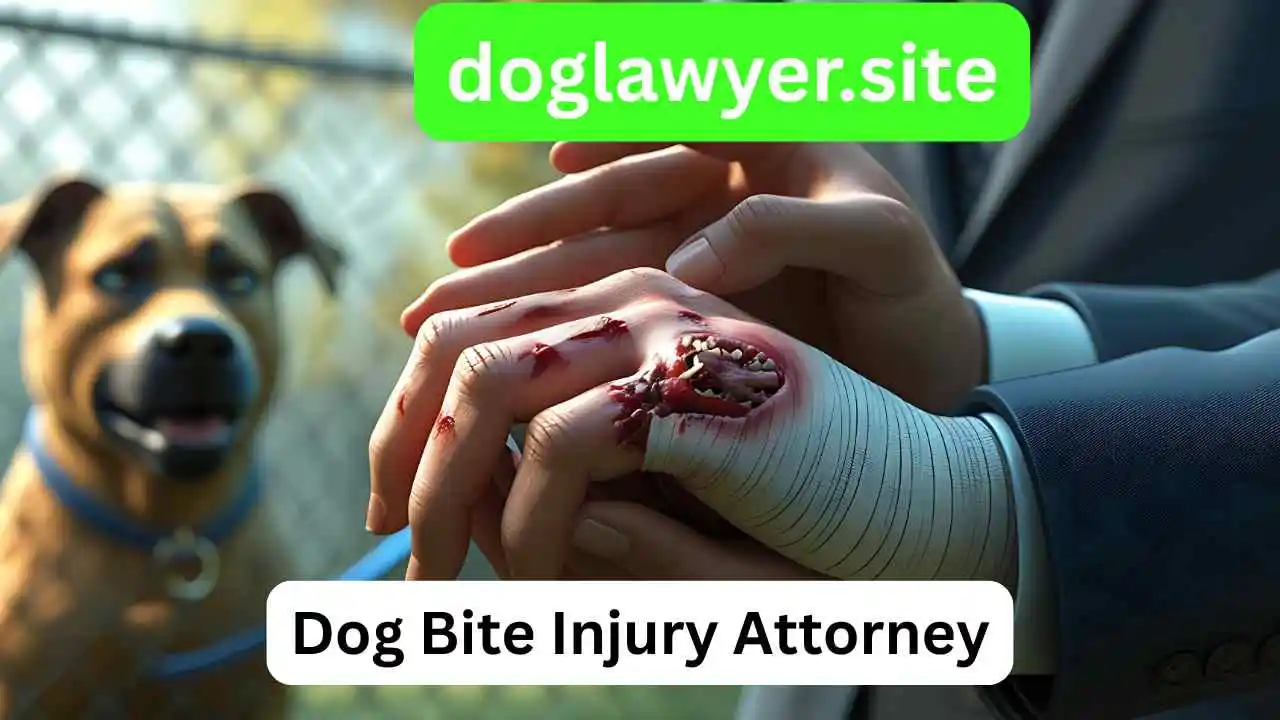More often than most of us would like to acknowledge, dogs bite people. A dog may suddenly lash out while you’re out for a walk, visiting a friend, or simply going about your daily business. In those situations, the confusion and ensuing legal chaos are just as damaging as the bite itself. Hiring an attorney seems obvious… but what most people don’t know? It’s not as straightforward as it sounds.
Let’s unpack the lesser-known, sometimes jaw-dropping truths about hiring a dog bite injury attorney.
Table of Contents
Fact #1: Not All Personal Dog Bite Injury Attorney Handle Dog Bite Cases
Specialization Matters More Than You Think
Sure, personal injury is a big umbrella. But dog bite law? That’s a whole different beast. It blends premises liability, negligence, local leash laws—you name it. Some lawyers just aren’t equipped for that. I once spoke to someone who hired a car accident attorney for their dog bite claim. Let’s just say, it didn’t go well.
Fact #2: Many Attorneys Won’t Take Small Claims
The Harsh Economics Behind Case Selection
Here’s something you might not hear until it’s too late: If your injury isn’t severe, many lawyers might pass. It’s not personal—it’s business. These cases often operate on contingency, and smaller settlements might not be worth their time. Sounds harsh, but it’s the reality of how firms stay afloat.

Fact #3: You Might Not Pay a Dime Upfront
Contingency Fees—A Double-Edged Sword
Dog bite attorneys typically take cases on a contingency fee basis. That means no win, no fee. Sounds great, right? Well, mostly. It also means your lawyer’s incentive is tied to your payout. In theory, that aligns your interests. But in practice, it can lead to rushed settlements. Just something to be aware of.
Fact #4: Insurance Companies Love Unrepresented Victims
Why Going Solo Can Cost You Thousands
This one hits hard. Insurance companies are trained to minimize payouts. If they know you’re going it alone? They’ll use every trick in the book—lowball offers, delayed responses, even intimidation. One slip-up in wording and your claim could evaporate. I’ve seen it happen more than once.
Fact #5: Laws Vary Wildly by State and County
What’s Legal in One Zip Code Might Not Be in the Next
Some states follow strict liability. Others? They require proof of negligence or a “dangerous dog” history. And then there are local ordinances. Your cousin in Arizona might win big, while your claim in New York gets thrown out. Hiring a local expert isn’t optional—it’s essential.
Fact #6: Evidence Disappears Fast (Sometimes Overnight)
The Importance of Acting Immediately
Dog bites are physical and emotional. But from a legal standpoint, it’s all about the evidence—photos, medical records, witness statements. And those? They vanish quickly. The dog might get hidden away, cleaned up, or worse, put down. You can’t afford to wait. Every hour counts.
Fact #7: You May Be Suing a Neighbor or Friend
The Awkward Truth About Who’s Legally Liable
Most people freeze at the thought: “But it was my friend’s dog…” It’s uncomfortable, sure. But the reality is, you’re usually going after their homeowner’s insurance, not their personal bank account. Still, the emotional toll? Very real. I’ve seen friendships tested over this.
Fact #8: Settlements Aren’t Always in Your Best Interest
When to Say No to Fast Money
Insurance companies love fast settlements. They might throw a few thousand your way and call it done. But what if complications arise later? Infections, PTSD, or even permanent scarring? That “quick win” can turn into long-term regret. A good attorney will tell you when to push back.
Fact #9: Some Lawyers Overpromise, Underperform
Red Flags to Watch Out for Before Signing
A slick website and a flashy promise don’t make a great attorney. Some overhype their abilities, only to disappear after signing. If your lawyer won’t answer questions, explain your options, or give you honest feedback? Walk away. Fast. Trust your gut—it’s usually right.
Practical Solutions After a Dog Bite Injury: What You Should Actually Do
So, let’s say it’s happened—you’ve been bitten. The adrenaline’s fading and reality’s setting in. What now? You’d be surprised how many people freeze or fumble through the next steps, which are arguably the most important. Here’s a breakdown of realistic, helpful things you can actually do (and why they matter).
1. Prioritize Medical Treatment, Always
Before anything else, get checked out. Even if it seems “not that bad.” Dog mouths carry bacteria that can lead to nasty infections, and some injuries don’t look serious at first but can get worse fast. Plus, medical documentation? That’s crucial for your case later.

2. Report the Incident to Local Authorities
This could be animal control, your local health department, or the police depending on where you live. Why does this matter? Because it creates an official record. Also, they may investigate whether the dog has a history of aggression—information that’s extremely valuable legally.
3. Don’t Speak with the Dog Owner’s Insurance by Yourself
This might feel uncomfortable, especially if the dog belongs to someone you know. But try to document:
- Your injuries (photos from multiple angles)
- The scene of the bite
- The dog, if possible
- Any torn clothing or damaged property
- Witness names and contact info
Trust me, a few pictures today can be worth thousands tomorrow.
4. Avoid Talking to the Dog Owner’s Insurance Alone
They might seem polite, helpful even—but their job is to save the company money. You could unintentionally downplay your injuries or admit fault. It’s better to say, “I’ll have my attorney contact you,” and leave it at that.
5. Consult a Dog Bite Attorney ASAP
Some people wait weeks or even months. Don’t. The sooner you speak with someone, the more they can help preserve evidence, protect your rights, and guide you away from common mistakes. Most offer free consultations, so there’s really no downside.
6. Ask the Right Questions When Hiring a Lawyer
Not all attorneys are created equal. Ask them:
- How many dog bite cases have you handled?
- What’s your success rate?
- How do you charge?
- Will I be working with you directly?
If they dodge or rush you—red flag. Walk away.
7. Focus on Long-Term Recovery, Not Just the Legal Battle
You concentrate on your recovery while your attorney takes care of the legal aspects. That might include physical therapy, counseling, or even just time away from dogs. Emotional recovery is just as important, even if nobody talks about it much.
Conclusion
Dog bites are traumatic. Physically, emotionally, financially—it’s a whirlwind. And while hiring an attorney should ease the burden, it can bring its own set of surprises. Some good. Some… not so much. Understanding these shocking truths upfront? That’s your best defense.
If you or someone you know is dealing with a dog bite injury, take your time. Ask questions. Trust your instincts. Additionally, even if the process becomes chaotic, don’t be scared to speak up for yourself.
FAQs
For a minor dog bite, do I really need a lawyer?
Maybe not, but even small bites can lead to infections or legal complications. It’s worth at least a free consultation.
What if the owner of the dog is a friend or family member?
You’re usually filing a claim against their insurance—not them personally. But yes, it can get awkward.
How much time do I have to submit a claim?
It varies by state—sometimes as short as one year. The sooner you act, the better.
Can I sue if I was partially at fault?
In many cases, yes. States have comparative fault rules, meaning your compensation might be reduced but not denied.
What compensation can I realistically expect?
Pain and suffering, lost income, medical expenses, and even psychological damage all vary.
Read More
7 Best-Rated Dog Bite Lawyers Near Me That Win Big


